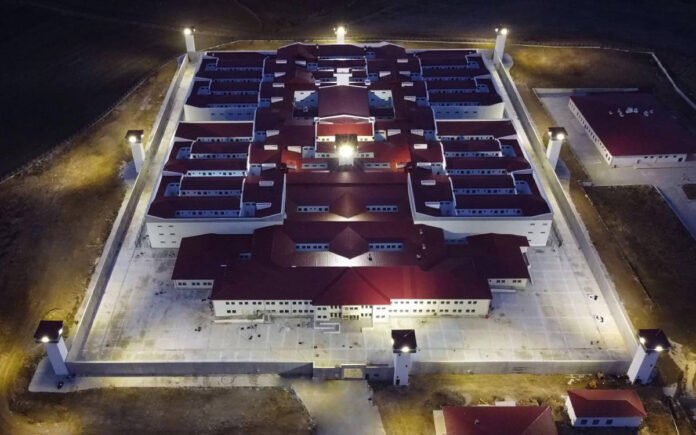The İstanbul Bar Association has called for the closure of so-called “pit-type” prisons and urged the authorities to address the demands of inmates on a hunger strike, citing serious rights violations documented in a new report.
At a press conference on Thursday, bar officials said their Human Rights Center prepared the report after a visit to Çorlu Karatepe High-Security Prison and from reviewing letters sent by prisoners in other facilities. They also met with two inmates, Fikret Akar and Serkan Onur Yılmaz, who are on a hunger strike, demanding the closure of “pit-types” and transfers to other prisons. At least eight others have joined the protest, according to the bar association.
Turkey’s S and Y-type prisons, along with other high-security facilities, are collectively known as “pit-type” prisons and have long attracted criticism for enforcing solitary confinement, limiting social interaction and severely restricting yard time, sports and other recreational activities. In Turkey there are 13 Y-type, seven S-type and 23 other high-security facilities.
The report identifies the lack of open spaces in front of cells as the main structural problem. Prisoners, who spend nearly 23 hours a day confined to their cells, are only taken to common yards of the prison for fresh air, effectively leaving them in conditions akin to continuous solitary confinement. Inmates also complain that those yards are made of concrete and become extremely hot in summer with no sun protection.
Privacy issues associated with constant camera surveillance in three-person cells has also been a cause of concern.
The report said the most serious violations stem from denying prisoners their right to social interaction and exercise, in accordance with the Ministry of Justice circular dated January 22, 2007. Although regulations allow group meetings of up to 10 people for 10 hours a week, this is reportedly never implemented, while exercise is restricted to just one hour a month.
It also cited health-related abuses, such as withholding treatment from inmates who refuse to undergo medical exams in handcuffs and leaving them for hours in transport vehicles. Other grievances include arbitrary bans on letters, limits on books and stationery and the withholding of materials sent by publishers.
The report comes amid broader problems in Turkey’s prison system, where overcrowding has become a persistent concern. Turkey has 400 prisons with an official capacity of 304,608 but which currently hold 419,194 inmates. To address overcrowding, the government plans to build 11 new prisons by 2027 with an expected total cost of 23.5 billion lira. The 2025 budget includes 1.2 billion lira for this construction. Despite these plans, authorities have made no concrete improvements to existing prison conditions, leaving the demands of inmates and human rights groups unaddressed.















